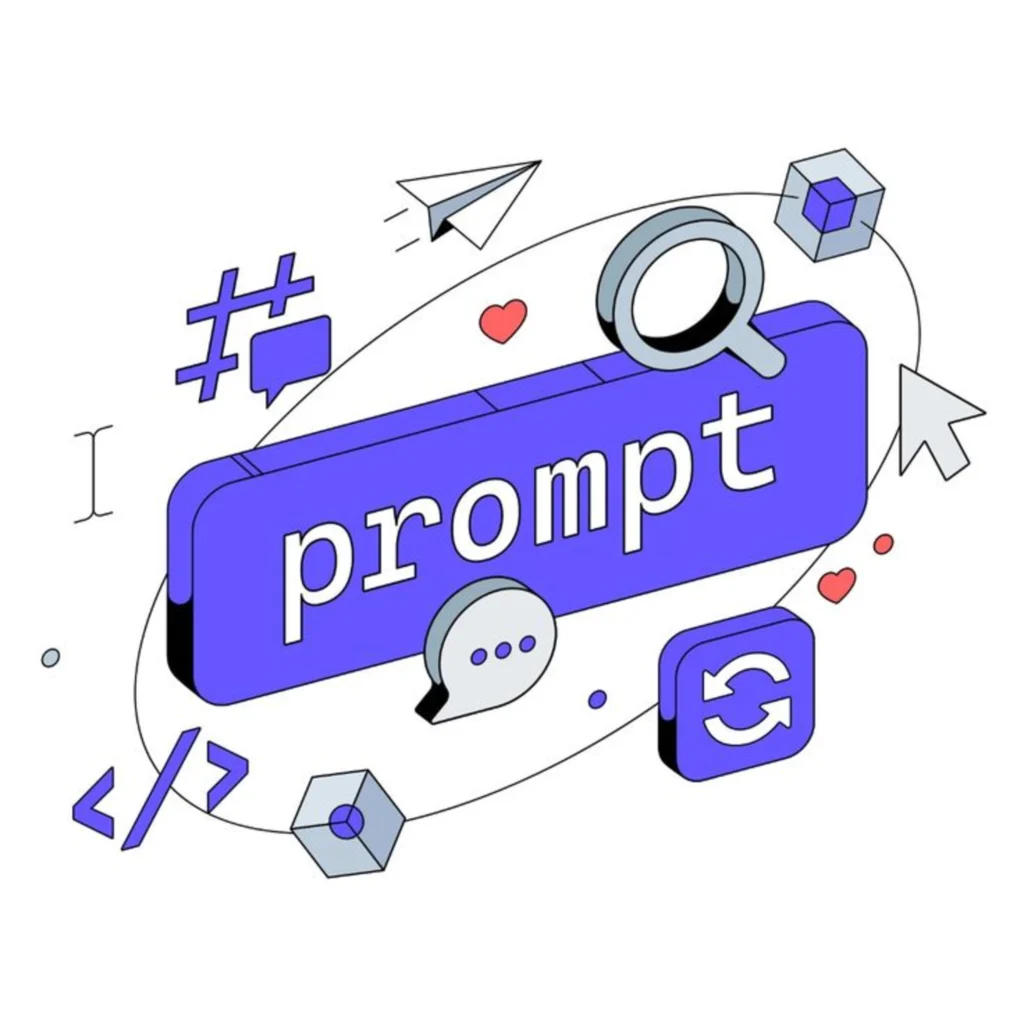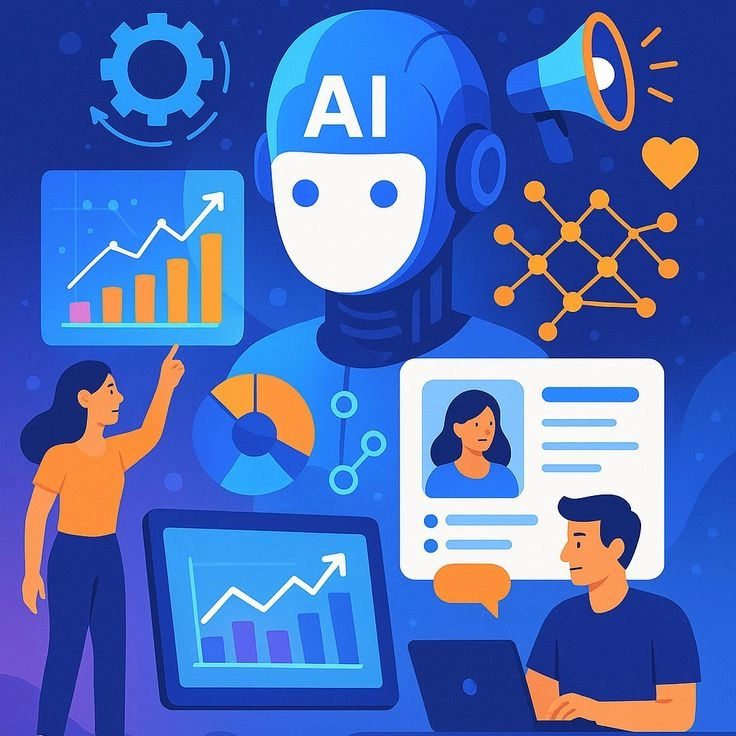Best Powerful How Prompt Engineering Is Redefining the Role of AI in Business

seo analyst seo analyst In an era where artificial intelligence (AI) is revolutionizing every aspect of business, prompt engineering has emerged as a strategic discipline at the intersection of technology and communication. As companies increasingly adopt large language models (LLMs) such as ChatGPT, Bard, and Claude, the need to interact with these models efficiently becomes essential. This is where prompt engineering steps in—reshaping the way businesses develop, deploy, and derive value from AI systems. This article explores how prompt engineering is redefining the role of AI in business, improving outcomes across sectors, and unlocking new opportunities for innovation, productivity, and customer engagement. 1.Understanding Prompt Engineering: More Than Just Asking Questions At its core, prompt engineering is the art and science of crafting inputs (or “prompts”) that guide AI models to deliver accurate, useful, and contextually relevant responses. While the term might sound simple, its execution requires a deep understanding of both language and machine learning behavior. Unlike traditional programming, prompt engineering relies on natural language to instruct AI systems. Consequently, a well-designed prompt can make the difference between a vague output and a precise, business-ready solution. As LLMs become more capable, the quality of prompts directly influences performance and productivity. 2.From Automation to Augmentation: AI’s Evolving Business Role Traditionally, AI in business focused on automation—replacing repetitive, rules-based tasks with machine-driven efficiency. However, with the rise of generative AI and natural language models, the role of AI is shifting from mere automation to cognitive augmentation. Prompt engineering enables this shift by allowing users to tap into AI’s reasoning, creativity, and analytical capabilities. This evolution means that businesses no longer use AI only to “do”—they use it to think, decide, and innovate, fostering deeper collaboration between human intelligence and artificial intelligence. 3.Enhancing Customer Support with Precision Prompts One of the most impactful uses of AI in business lies in customer service. AI-powered chatbots and virtual agents are increasingly handling inquiries, complaints, and requests. However, the quality of their responses depends heavily on the prompts used during training and deployment. With prompt engineering, businesses can ensure their AI systems respond empathetically, accurately, and consistently. Tailored prompts help virtual agents provide personalized assistance, reduce response times, and escalate issues only when necessary—resulting in improved customer satisfaction and operational efficiency. 4.Unlocking Better Insights Through Data Analysis Prompts Prompt engineering is not limited to conversational applications. In data-driven industries such as finance, marketing, and healthcare, prompt engineering plays a vital role in data interpretation and insight generation. For instance, analysts can instruct an LLM to summarize large datasets, identify patterns, or generate visualizations using well-structured prompts. As a result, non-technical business users gain access to deeper insights without needing advanced data science expertise, thus democratizing analytics across teams. 5.Content Creation and Marketing: AI as a Creative Partner Marketing professionals have embraced AI tools to generate everything from blog posts to product descriptions. However, without proper prompt engineering, the output can be generic or misaligned with brand messaging. Therefore, marketers now focus on crafting prompts that align with tone, intent, and audience expectations. Effective prompt engineering ensures that AI-generated content adheres to SEO practices, maintains brand voice, and resonates with target customers. Additionally, it helps marketers brainstorm ideas, test messaging variations, and accelerate content production. 6.Training AI for Industry-Specific Applications Every industry has unique terminology, workflows, and expectations. Prompt engineering allows businesses to train AI models for domain-specific tasks without extensive custom coding or dataset creation. For example, a legal firm can use carefully worded prompts to analyze contracts, while a real estate agency might prompt an LLM to write property descriptions or summarize local market trends. This ability to specialize AI behavior through language is a game-changer for industries with niche requirements. 7.Improving Decision-Making with AI Collaboration Executives and managers increasingly rely on AI for decision support—whether it’s forecasting trends, evaluating risks, or simulating scenarios. Through prompt engineering, decision-makers can interact with AI models conversationally, refining the analysis or requesting alternate perspectives. This collaborative approach leads to more informed, data-backed decisions. By asking the right questions, leaders can extract deeper insights and uncover blind spots that static dashboards or spreadsheets may overlook. 8.Prompt Engineering as a Competitive Advantage In today’s digital economy, prompt engineering offers a new kind of competitive advantage. Businesses that master prompt design are better equipped to harness AI’s potential for innovation, efficiency, and customer engagement. Moreover, teams with prompt engineering expertise can reduce development cycles, optimize AI outputs, and create unique user experiences. As generative AI adoption grows, prompt fluency will be a critical skill not just for developers, but for marketers, analysts, and executives alike. 9.Challenges and Best Practices in Prompt Engineering Despite its promise, prompt engineering comes with challenges. Language ambiguity, inconsistent outputs, and model limitations can lead to unexpected results. Therefore, it is crucial to approach prompt design iteratively—testing, refining, and documenting best practices. Best practices include using clear instructions, providing context, setting constraints, and using examples. Additionally, collaboration between technical teams and domain experts ensures that prompts align with real-world goals and expectations. The Future of Business and AI: Powered by Prompt Engineering Looking ahead, prompt engineering will play a central role in shaping AI-powered business strategies. As models become more sophisticated and integrated into daily operations, the demand for prompt experts will rise significantly. Businesses that invest in prompt engineering today are not just improving their current AI outputs—they are preparing for a future where language becomes the primary interface for software, intelligence, and productivity. Conclusion: Redefining AI Through Language and Logic In conclusion, prompt engineering is not merely a technical skill—it is a strategic capability that empowers businesses to extract more value from artificial intelligence. From customer service to decision-making, prompt engineering enhances AI performance, aligns it with business goals, and ensures relevance and reliability across use cases. As the digital landscape evolves, the ability to communicate effectively with AI will separate leaders from followers. Embracing prompt engineering now sets the foundation for smarter, faster, and more responsive business operations in the years to come.
AI Meets Marketing: How Artificial Intelligence Empowers Digital Marketers

AI Meets Marketing Artificial Intelligence (AI) is rapidly transforming industries across the globe, and digital marketing is no exception. What was once driven by instinct and manual processes is now fueled by automation, algorithms, and advanced data analytics. In today’s competitive digital landscape, AI enables marketers to work smarter, deliver personalized experiences, and make data-driven decisions with confidence. This blog explores the powerful intersection of artificial intelligence and digital marketing. Through nine insightful sections, we’ll delve into the specific ways AI supports marketers—from customer segmentation to content creation—and what this means for the future of marketing. 1.The Rise of AI in Digital Marketing Over the past decade, artificial intelligence has gone from a futuristic concept to an essential business tool. Digital marketers have embraced AI to automate tasks, predict customer behavior, and improve campaign efficiency. This adoption has fundamentally changed how marketing strategies are developed and executed. Incorporating AI into digital marketing allows professionals to analyze vast amounts of data, uncover insights, and create more meaningful interactions with customers. As a result, businesses gain a competitive edge through improved targeting, personalization, and ROI. 2.Smarter Customer Segmentation with AI Traditionally, customer segmentation required marketers to rely on basic demographic data. However, AI revolutionizes this process by examining behavioral patterns, purchasing history, social media activity, and more. Through machine learning algorithms, digital marketers can create highly accurate and dynamic customer profiles. Consequently, segmentation becomes more meaningful, allowing brands to deliver relevant messages to the right audience at the right time. AI tools such as predictive analytics help identify high-value customer segments, improving both retention and conversion rates. 3. Personalization at Scale Modern consumers expect personalized experiences, and AI makes this possible—even for large audiences. By analyzing individual user data in real time, AI can tailor product recommendations, email content, and even website layouts to match user preferences. This level of personalization increases customer engagement, builds brand loyalty, and enhances the overall user experience. Tools like chatbots and recommendation engines rely on AI to ensure interactions feel human, contextual, and helpful. 4.AI-Powered Content Creation and Optimization AI doesn’t just analyze data—it creates, too. Content creation tools powered by natural language processing (NLP) can generate blog posts, ad copy, social media updates, and more. Although human creativity remains crucial, AI assists in producing drafts quickly and efficiently. Furthermore, AI tools help optimize existing content for SEO. By analyzing keyword usage, readability, and performance, these platforms guide marketers in refining content to meet algorithm standards and audience expectations. 5.Enhanced Social Media Marketing with AI Social media platforms generate massive volumes of data, making it nearly impossible for marketers to track trends manually. AI algorithms analyze engagement patterns, sentiment, and reach to inform content strategy and scheduling. Moreover, AI tools automate social media publishing and even suggest the best times to post. With AI-driven analytics, digital marketers gain a clearer picture of what content resonates most with their target audience. 6. Predictive Analytics for Smarter Campaigns One of AI’s greatest advantages is its ability to forecast outcomes. Predictive analytics uses historical data, current trends, and machine learning models to anticipate future behavior. This allows digital marketers to plan campaigns with greater accuracy. For example, predictive tools can estimate which users are most likely to click on an ad, make a purchase, or unsubscribe. With this insight, marketers can allocate budgets effectively and focus on high-converting tactics. 7. AI Chatbots and Real-Time Customer Support AI-powered chatbots are revolutionizing customer service in digital marketing. Available 24/7, these bots can handle thousands of interactions simultaneously, answering queries, offering product recommendations, and collecting feedback. More importantly, advanced chatbots use natural language understanding to hold realistic conversations. This reduces response time, improves customer satisfaction, and frees up human agents to handle more complex issues. 8. Programmatic Advertising and AI Efficiency Programmatic advertising refers to the automated buying and selling of online ads. AI plays a central role by analyzing user data and determining which ads to show, to whom, and when—all in real time. This level of automation ensures maximum relevance and cost efficiency. As a result, businesses can improve ad performance, reduce wasteful spending, and reach their ideal customers more precisely than ever before. 9. The Future of Digital Marketing: AI as a Strategic Partner Looking ahead, artificial intelligence will become even more integrated into digital marketing strategies. As AI systems evolve, they will not just assist with execution but offer strategic recommendations and creative insights. For digital marketers, this means shifting their roles from executors to strategists. They must learn to interpret AI-generated insights, apply them creatively, and use technology to build meaningful brand experiences. Businesses that adopt AI early will be well-positioned to lead the digital marketplace. Conclusion: Embracing AI for Marketing Success Artificial intelligence has reshaped the digital marketing landscape by enhancing efficiency, personalization, and decision-making. From content creation to customer engagement, AI tools help marketers deliver impactful campaigns with measurable results. As technology continues to advance, marketers must adapt by learning how to use AI effectively. Those who embrace this shift will unlock new opportunities and drive sustainable growth in an increasingly competitive environment.
The Digital Pulse: Unveiling the Power of Digital Marketing

digital marketing analyst This comprehensive guide delves deep into the world of digital marketing—its definition, core components, benefits, and strategies—offering clarity and direction for businesses and individuals seeking to thrive in the digital age. 1.The Evolution of Marketing in the Digital Age Marketing has undergone a dramatic transformation over the past two decades. Initially, businesses relied heavily on print media, cold calls, and direct mail. However, with the rise of the internet and smartphones, consumer behavior shifted, demanding more personalized and immediate interactions. As a result, digital marketing emerged as a powerful alternative. Not only does it provide cost-effective outreach, but it also fosters two-way communication between brands and consumers. Moreover, businesses can now operate globally, reaching audiences beyond geographical boundaries with a simple click. Search Engine Optimization (SEO) SEO involves optimizing a website to rank higher on search engines like Google. By targeting relevant keywords and improving website structure, businesses can increase their online visibility organically. Content Marketing This strategy focuses on creating and distributing valuable, relevant content to attract and retain a clearly defined audience. Blog posts, videos, infographics, and whitepapers all fall under this umbrella. Social Media Marketing Leveraging platforms like Facebook, Instagram, LinkedIn, and X (formerly Twitter), brands engage with users, share content, and build communities. Other crucial components include email marketing, pay-per-click advertising (PPC), affiliate marketing, and influencer collaborations, each offering unique advantages. 2.Digital Marketing vs. Traditional Marketing While traditional marketing still has its place, it lacks the agility and precision of digital strategies. Consider the following differences: Measurability: Digital campaigns can be tracked minute by minute, while print or TV ads offer limited analytics. Audience Targeting: Online ads allow for hyper-specific targeting based on demographics, interests, and online behavior. Engagement: Digital platforms enable two-way interactions, allowing brands to respond to feedback instantly. Consequently, many businesses are shifting their budgets to digital platforms to remain competitive and relevant. 3.Popular Digital Marketing Strategies for Business Success Every successful digital campaign stems from a well-thought-out strategy. Let’s explore some of the most impactful digital marketing tactics: Search Engine Marketing (SEM) SEM combines paid advertising with organic efforts to enhance search visibility. Google Ads, for instance, allows brands to appear at the top of search results for targeted keywords. Email Marketing This time-tested technique involves sending tailored messages directly to subscribers. Whether it’s a newsletter or a product announcement, email marketing fosters loyalty and drives conversions. Influencer Marketing Collaborating with digital influencers enables brands to tap into trusted voices within niche communities, boosting brand awareness and credibility. When executed correctly, these strategies amplify reach, strengthen brand identity, and increase sales. 4.The Role of Analytics and Data in Marketing One of the defining advantages of digital marketing is its measurability. Tools like Google Analytics, Meta Business Suite, and SEMrush provide real-time data on website traffic, user behavior, and campaign performance. By analyzing this data, marketers can identify what works and what doesn’t. They can adjust targeting parameters, refine content strategies, and even predict consumer trends. Data-driven decision-making ensures that businesses maximize their marketing investments effectively. Furthermore, tools such as CRM software allow for customer segmentation, enabling marketers to tailor messages based on customer profiles. 5.Skills Every Digital Marketer Should Master To succeed in digital marketing, one must develop a diverse skill set. Here are some key areas of expertise: Technical Skills A solid grasp of SEO, analytics tools, and content management systems (like WordPress) is essential. Understanding how to manage ad platforms and optimize landing pages also adds value. Creative Skills Storytelling, design aesthetics, and content creation play a critical role. A compelling narrative or engaging video can significantly boost a campaign’s effectiveness. Additionally, soft skills such as adaptability, critical thinking, and communication are vital in navigating the fast-paced digital landscape. Artificial Intelligence (AI) and Automation AI tools are revolutionizing customer service, content generation, and audience targeting. Chatbots, predictive analytics, and automated workflows enhance efficiency and personalization. Voice Search and Visual Search With the rise of smart speakers and image-recognition tools, marketers must optimize content for voice and visual queries, changing the way people find information online. Moreover, the integration of augmented reality (AR), blockchain marketing, and 5G will further redefine digital experiences in the coming years. Conclusion: Embracing the Digital Frontier In conclusion, digital marketing is more than just a buzzword—it’s the foundation of modern business growth. By harnessing its diverse channels and data-driven capabilities, brands can build deeper customer relationships, expand their reach, and remain competitive in an ever-changing landscape. Whether you’re a small business owner or a seasoned marketer, embracing digital marketing is not only wise—it’s essential. The digital world offers endless opportunities; the key lies in crafting the right strategies and staying ahead of the curve.
Hello world!
Welcome to WordPress. This is your first post. Edit or delete it, then start writing!
